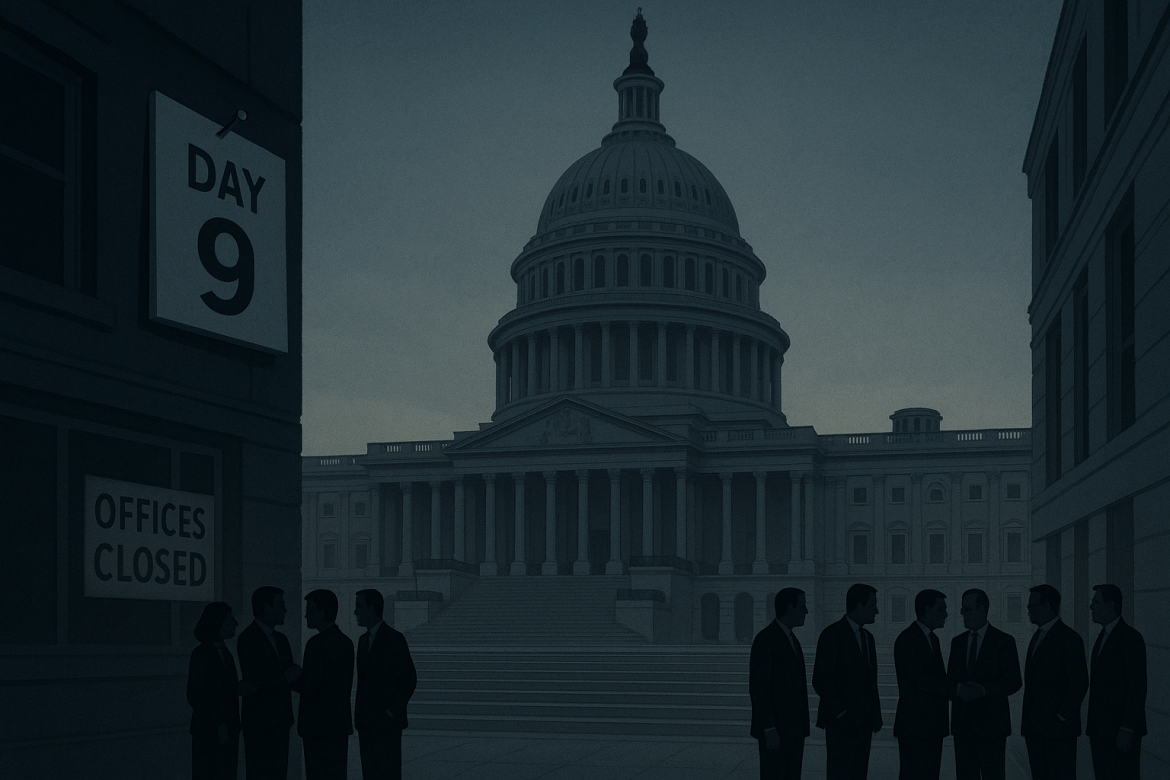The US Senate on Thursday once again failed to advance a short-term funding measure aimed at ending the government shutdown, marking the seventh unsuccessful attempt since the standoff began.
Lawmakers remain entrenched in a partisan impasse, with little sign of compromise as the shutdown stretches into its ninth day.
Stalemate deepens as Senate rejects stopgap bill again
In a 54–45 vote, senators declined to move forward on a stopgap funding bill that would temporarily reopen the government.
The outcome mirrored previous votes, with three Democrats joining Republicans in favor and one Republican voting against.
The consistent voting pattern underscores how entrenched both parties have become over the terms of reopening the government.
Democrats have insisted that any funding measure must include an extension of Affordable Care Act subsidies, which are set to expire.
They argue that maintaining those subsidies is essential to protecting millions of Americans’ access to healthcare.
Republicans, meanwhile, have opposed tying healthcare provisions to the broader budget deal, calling it an unnecessary condition for ending the shutdown.
Senate Minority Leader Chuck Schumer reiterated Democrats’ confidence in their negotiating stance, telling Punchbowl News that “every day gets better for us” as the shutdown drags on.
House leadership remains noncommittal on return schedule
While the Senate continues to vote on failed measures, the House of Representatives remains largely inactive.
Speaker Mike Johnson and Majority Leader Steve Scalise, both Republicans from Louisiana, have not committed to bringing the House back into session next week.
Johnson told reporters that the House remains “on a 48-hour notice to return if something changes,” while Scalise called on Senate Democrats to approve the House-passed seven-week funding bill.
However, neither leader provided a clear timeline for when the chamber would reconvene.
Some members of Johnson’s own party have expressed frustration over the repeated delays.
Representative Kevin Kiley of California criticized the speaker for canceling scheduled sessions, arguing that doing so signals inaction.
“The entire reason a continuing resolution is necessary is that Congress has not done its job in passing a timely budget,” Kiley wrote on X (formerly Twitter).
The House last met on September 19, when it passed the temporary funding bill now stalled in the Senate.
Since then, it has twice postponed its return to Washington, first for Rosh Hashanah and then to apply pressure on the Senate to act before the October 1 funding deadline.
White House signals spending cuts amid political tensions
At the White House, President Donald Trump sought to project control over the fiscal situation, saying his administration would “only cut Democrat programs.”
Speaking at a Cabinet meeting, Trump said the cuts would be “permanent,” framing them as part of a broader effort to reduce the size of government.
Earlier in the shutdown, the administration paused billions of dollars in federal funding for projects located in Democratic-leaning states.
The president has also floated the idea of significant layoffs, though no formal plans have been announced.
Trump’s remarks highlight the growing political tension surrounding the shutdown, as both parties blame each other for the stalemate. With federal workers facing potential missed paychecks and key programs at risk of disruption, pressure is mounting on Congress and the White House to reach an agreement.
The post Senate fails for the seventh time to advance bill to end government shutdown appeared first on Invezz

